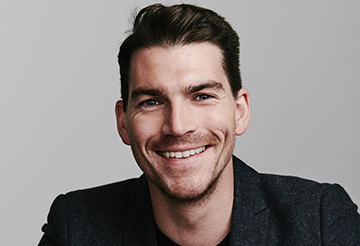How to break an addiction, overpower negative habits and take back control
Discover transformative ways to break an addictive cycle and set up positive replacements.
Discover transformative ways to break an addictive cycle and set up positive replacements.



Breaking an addiction can be incredibly challenging. There are often many barriers standing in the way, from the loss of motivation to the constant pull of temptation. Understanding why habits form - and why they’re so hard to let go of - is the first step towards meaningful change.
Addiction often stems from the repeated practice of a behaviour that brings some form of reward. What may begin as an enjoyable or seemingly harmless activity can, over time, snowball into something more damaging and difficult to control. In a society where temptations are everywhere and instant gratification is the norm, staying on track can feel like an uphill battle.
Whether you’re taking the first steps on your recovery journey or supporting someone else through theirs, learning how to break unhelpful habits is vital for long-term wellbeing.
Breaking a habit often feels overwhelming – especially when the end goal seems far away. That’s why it’s important to start small. Research published in the World Journal of Advanced Research and Reviews shows that breaking your goal down into realistic, bite-sized steps makes change feel more manageable and increases your chances of success.
Example: If your goal is to stop drinking alcohol during the week, start by setting a goal of alcohol-free Mondays. Once that becomes easier, add another day, and so on. Progress doesn’t have to be all or nothing.
Celebrating these small wins reinforces your motivation and helps you stay focused on the bigger picture.
Many habits are linked to certain people, environments or emotional states. Learning to identify your triggers is key to avoiding relapse. Once you know what causes you to engage in a bad habit, you can take action to reduce or remove those cues from your daily life.
Example: If you tend to smoke when you’re stressed or when you’re socialising with certain friends, consider healthier ways to cope – like breathing exercises, going for a walk, or limiting time with people who encourage the behaviour.
Simple changes like keeping tempting items out of the house, avoiding certain places or establishing a new routine at high-risk times can make a big difference.
It’s easier to break a habit when you have something positive to put in its place. By creating new routines that offer a similar sense of reward or relief, you train your brain to associate comfort with healthier behaviours.
Example: If you often use alcohol to wind down after work, try replacing that with a relaxing alternative like a yoga session, a long bath, or a hobby that helps you decompress. Over time, your mind and body can learn to crave the new reward instead.
You don’t have to go through this alone. A study in Substance Abuse Journal found that building a support system – whether it’s friends, family members, colleagues or professionals – can provide the encouragement, accountability and reassurance you need to stay on track and prevent relapse.
Example: Tell a trusted friend about your goals and check in with them weekly. Or consider joining a local support group or speaking with a mental health professional for extra guidance.
Having people who understand your journey and want the best for you can make all the difference on difficult days.
No matter how committed you are to breaking a habit, there will be days when your motivation dips, or when you slip back into old behaviours. This is completely normal. Setbacks are part of the journey, not the end of it.
Understanding how to manage your mind-set during these moments can help you bounce back more quickly and stay focused on long-term change.
When motivation fades, go back to your reasons for making the change in the first place. Remind yourself of what you’re working towards – whether it’s better health, stronger relationships, or simply feeling more in control of your life.
A useful tip could be to write a short list of personal motivations, or positive sobriety affirmations, and keep it somewhere visible – on your phone, your bathroom mirror or in a journal. Reading it during low points can help re-ignite your drive.
Changing habits isn’t about being perfect. It’s about making consistent, purposeful choices that align with your goals. Recognising and celebrating your small victories can help keep you motivated and shift your focus from setbacks to successes.
Set clear milestones that you want to celebrate and record them in a calendar or habit-tracking app. This gives you something to look forward to and will remind you when you reach these goals.
For example, if you went a full week without giving into temptation, take a moment to acknowledge that achievement – even if you faltered on day 8. You’ve still made real progress and it still matters.
Addiction often brings feelings of guilt and self-criticism, which can make it harder to move forward and even trigger relapse. Rather than letting shame take over, try to meet yourself with kindness and understanding. Research from The European Journal of Counselling Psychology found that being kinder to yourself can lead to better emotional regulation in substance abuse disorders, meaning a lower chance of relapse.
Practising self-compassion doesn’t mean ignoring mistakes – it means acknowledging your struggles without judgement and reminding yourself that healing takes time.
Here are a few simple, accessible ways to show yourself compassion:
Once you’ve made positive changes, the next challenge is maintaining them. It’s common to feel confident early on, only to find old habits creeping back in when life gets busy or stressful. But with the right mind-set and strategies in place, you can stay on track for the long haul.
Tracking your habit changes keeps you connected to your goals and shows you how far you’ve come. This can be especially motivating during moments of doubt or stress.
Use a habit tracker, journal or app to monitor your daily actions and reflect on how you’re feeling. Setting reminders to do this and noting any changes can give a huge sense of achievement.
It’s important to remember that your routine won’t always go to plan, and that’s OK. Life changes, and so do your needs. What was working in the early days of breaking a habit might need to be adjusted over time.
For example, if going to the gym helped you stop drinking initially, but your schedule has since changed, consider swapping it for home workouts or a new hobby.
Recovery isn’t always linear – some days will feel harder than others, and relapses can happen. But slipping up doesn’t mean you’re back to square one. What matters is how you respond.
Having a plan in place for challenging moments can make all the difference. Try writing a short relapse plan you can turn to when things get tough. Include:
To help you get started, we have a free downloadable relapse prevention plan to support your recovery journey.
While self-help strategies can go a long way, some habits – especially those tied to deeper emotional or psychological issues – may need additional support. Seeking help isn’t a sign of weakness; it’s a powerful step towards lasting recovery.
If you’re finding it difficult to break the cycle on your own, or if the habit is linked to anxiety, depression or another mental health issue, it may be time to speak to a professional. Therapy can help you explore the root causes of the habit, to help you build healthier coping mechanisms and accountability.
You don’t have to go through this alone. There are also a number of free support options that can help you on your recovery journey:
There’s no set timeframe as it depends on the individual, the habits and the factors behind it. A common myth suggests that it takes 21 days – but research suggests it can take anywhere from a few weeks to several months. The key is consistency, not speed.
Relapse is part of many people’s recovery journeys and doesn’t mean you’ve failed. What matters most is how you respond. Reflect on what led to the setback, revisit your relapse plan (or create one), and take one positive step forward. Try not to dwell on the slip-up – acknowledge it, learn from it and refocus.
Yes, if you’re struggling, support is out there. Therapists, GPs and support groups can all offer guidance tailored to your needs. You don’t have to do this alone.
For more intrusive habits, working with a mental health professional can help you understand the root cause and build lasting strategies for change.
